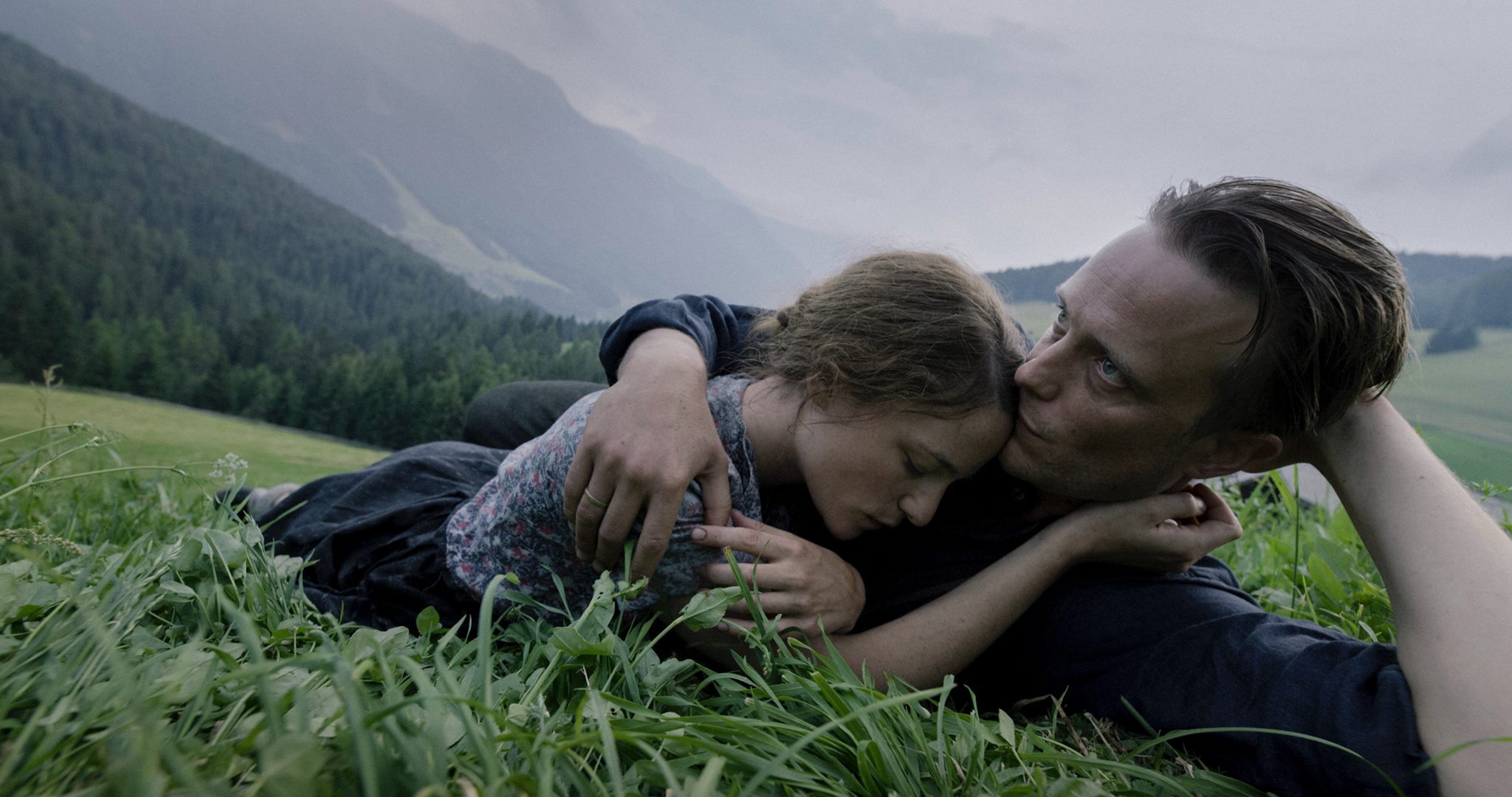Filmmaker Terrence Malick’s most recent release, A Hidden Life, takes place in St. Radegund, a rural Austrian municipality of approximately 500 people. Based on a true story, the film follows Franz Jägerstätter, a farmer who takes peaceful action by refusing to swear allegiance to Hitler and to fight in the German military during the Second World War. We also witness the effect that Franz’s decision has on the tight-knit community he comes from, and how this in turn affects the everyday life of his family, which includes his mother, his wife Fanny and their three daughters, and Fanny’s sister.
It is clear from the beginning of the film that, like most farming communities, the Jägerstätter family are reliant on their neighbors’ help and vice versa. They spend their days carrying out farming chores, such as sowing and plowing fields, picking apples, looking after the livestock, and making dairy products from scratch. Nobody is left out, as the young and old participate in these significant daily tasks.
Malick’s portrayal of rural life in upper Austria is stunning, with the cinematography capturing details such as the effect of the föhn (a dry, warm, wind that occurs in the downwind side of a mountain range) on the local fauna, and the flushed cheeks of the villagers as they work the land. That being said, life is far from idyllic, and as a community they struggle with the harsh realities of farming and all the heavy lifting that accompanies it. Nonetheless, Franz is a happy man, blessed with a loving and healthy family. He leads a strenuous but deeply rewarding life, and he volunteers at the local church and helps those in need. To all intense and purposes, he is a good catholic and a good father who loves his wife, his family and his community.
Despite the village’s remoteness, war arrives at its doorstep and able-bodied men are called for to train and to fight, leaving their wives and the elderly behind to do much of the hard work. Franz is one of these men, and when he comes back from his first stint of military training he is confounded by feelings of doubt and shame. He tells an old friend “We’ve invaded other countries. Stolen their land. And now we’re doing it again. Aren’t they the heroes, who fight against us—who defend their homes?” He does not believe in this war. Yet as he attempts to share his feelings with his kin, his disapproval is met with distrust, fear and animosity. As is the case with all dictatorships, Franz is no longer safe to voice his opinions, even to those he holds dearest. Even religion offers no guidance—when seeking help from the Catholic Church, Franz quickly discovers that it too has been silenced by the regime and that its priests daren’t express their opinions for fear that they will be locked up or executed.
As such, Franz is confronted not only with the silence of his kin, but he comes face-to-face with the silence of God. As Hitler’s Third Reich tightens its hold on the community, it becomes increasingly difficult for Franz to know what the right path is. He is denounced as being prideful and selfish, and even as he stands his ground, he is filled with doubt.
In A Hidden Life, Malick highlights the difficult truth that, contrary to what we may believe, it is not always obvious what constitutes right action; and that choosing a path that befits our values often brings with it a lot of discomfort and suffering. The conservative village of St Radegund is full of depictions of Jesus, always unquestionable in his glory and righteousness; yet in reality, the small but significant actions that have changed the course of the world are often painstakingly uncomfortable and end up being forgotten by history.


